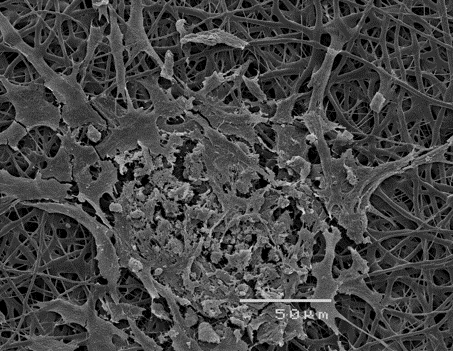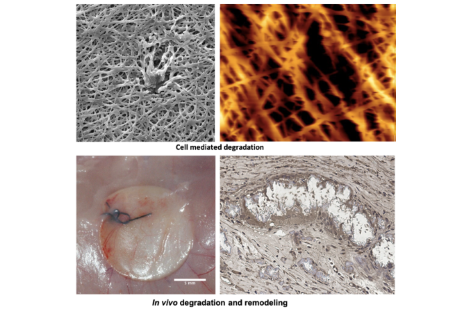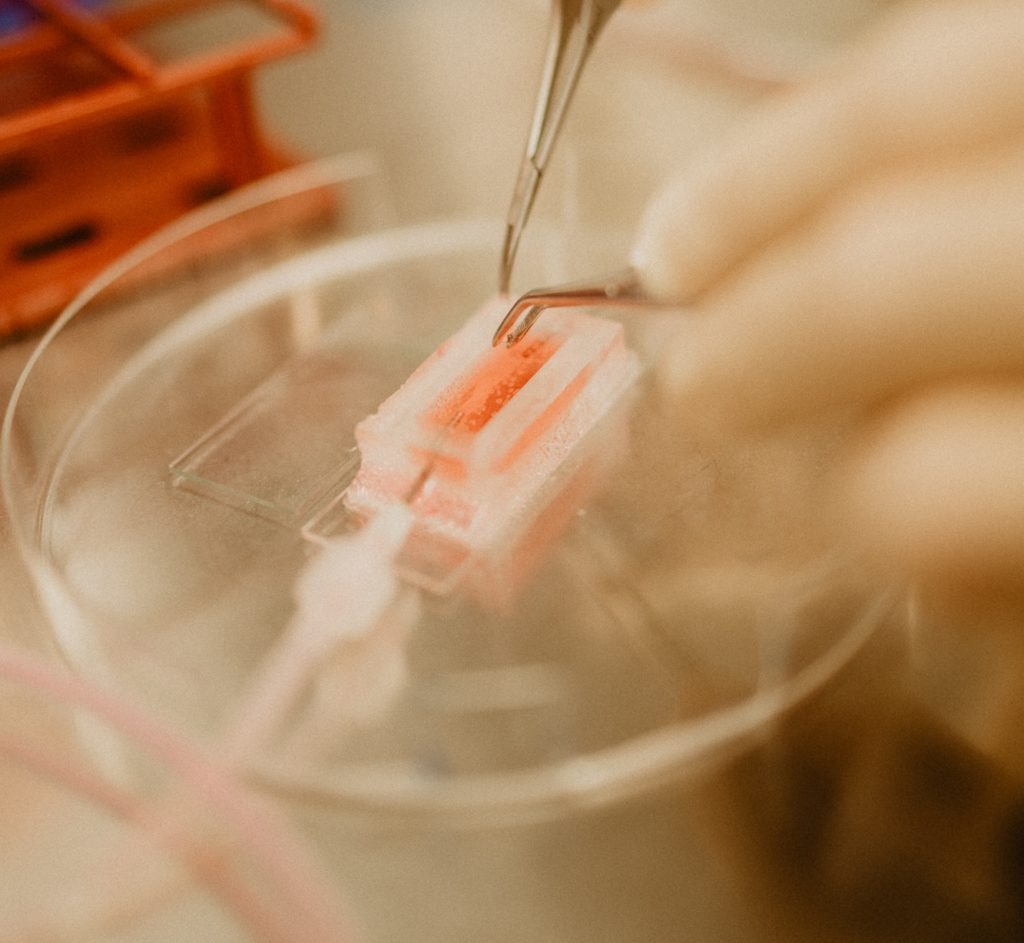Before implantation, the biocompatibility, immunomodulatory properties and functionality of an implant must be thoroughly tested. A broad range of state-of-the-art in vitro biomaterial assessment tools provides greater insight into host-biomaterial interactions.

Our goal is to develop predictive cell-based models to estimate immune response and biodegradation in patients. To this end, we are developing various in vitro mono- and co-culture models. The selection of cell types in the co-cultures is based on the application and site of implantation. Furthermore, we are investigating innovative perfusion bioreactor systems for cell migration studies, which are being developed together with the Center for Biomedical Physics and Biomedical Engineering of the MUW Vienna (H. Schima).
Ongoing Projects

The evaluation of the biocompatibility and immunomodulatory properties of an implant is a crucial step in the in vitro characterization of a biomaterial. Conventionally, only one cell type, macrophages, has been used in this assessment. In this project, we are taking an exciting approach by developing a co-culture model as a tool for biocompatibility assessment of biomaterial. The choice of cell type in the co-culture is based on the application and site of implantation. After implantation of a vascular graft substitute, macrophages and fibroblasts are the two major cell types recruited at the tissue-biomaterial interface. Therefore, macrophage and fibroblast mono- and co-cultures in paracrine and juxtacrine arrangements are used to evaluate vascular implants. These co-culture models highly match the immunomodulatory/biocompatible behavior of the implant in vivo.

A reliable evaluation tool to assess the degradation of biodegradable materials which mimics physiological environment is still needed. Most of the previous in vitro studies about polymer degradation were performed in non-physiological environments, e.g., in the presence of phosphate-buffered saline, enzymatic oxidative solutions, or at elevated temperature (150 °C). As macrophages play a critical role in degradation, a cell culture model using primary monocyte derived macrophages was developed to study the degradation of vascular implants over an extended period of time in vitro. To extend the study period, the reseeding technique is used in this project. The culture of primary cells is able to mimic cell processing in real time and indicates individual response. This tool could be used for biodegradable biomaterials in regenerative medicine.

